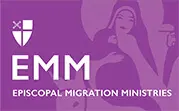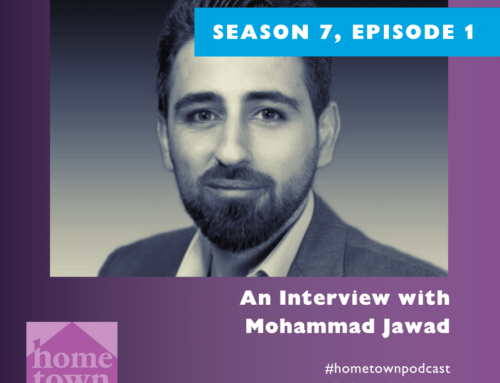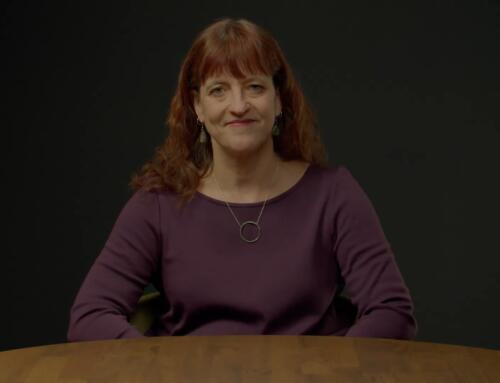Bosnian-born author Aleksandar Hemon was on a visit to Chicago in 1992 when war broke out and a siege began in his hometown of Sarajevo. His vacation suddenly and indefinitely extended, the tourist-turned-refugee worked hard on both his language skills and job possibilities until eventually obtaining American citizenship in 2000. Since the days of his initial dislocation, Hemon has published autobiographical short stories and novels, including Nowhere Man and The Lazarus Project.
In an interview with The Guardian reporter Alex Clark (September 13, 2015), about his then-new book, The Making of Zombie Wars, Hemon spoke about the zombie motif—a popular one in recent years—as a metaphor for the very real danger of dehumanizing refugees. In his words, “One way to avoid confronting that these are people with names and lives and pasts and desires is to mass them into the category of migrants or refugees, to de-individualize them.” Hemon goes on in that interview to note how sad it is when people risking their lives to come here is perceived or portrayed as an attempt “to steal from us what we have, this wonderful privilege of living in a democracy and having a stable life.” How awful, Hemon laments, that we move into a mode of self-protection, where “the only danger for us is their coming.”
Fear of the Other is hardly new. The apostle Peter was called to preach the Good News of God’s saving love in Christ Jesus to Cornelius, an outsider…worse, an officer in the Roman army of occupation. His reluctance was overcome only through a divine vision that challenged him on his notions of what—and who—is to be considered clean and acceptable. This tale in the tenth chapter of the Acts of the Apostles even offers the added detail of Peter’s residence when confronted with the vision: the town of Joppa, the same city where lived another reluctant biblical prophet, Jonah, who actually chose to flee rather than follow God’s command to reach out to the people of Ninevah. At least Peter did show up at Cornelius’ home, albeit halfheartedly.
It is, therefore, all the more wonderful that Peter would speak up at the Council of Jerusalem in Acts 15, a gathering brought together expressly for the purpose of deciding what to do with the growing number of Gentiles, outsiders all, who were entering the Christian community without doing what was expected to be considered clean and acceptable. Those who were arguing an exclusivist position were not bad people, per se, but their vision was limited; they could not see how the outsiders could ever be fully integrated as they were. If they had won the day, they might have retained the homogeneity they sought, but their world—and their God—would have been very small indeed. At that critical juncture in the early Church’s life, it was Peter, the one-time excluder, who stood with Paul and Barnabas and the outsiders they championed and made the bold assertion that “God has made no distinction between them and us” (15:9). The leaders in that room agreed, and the Church was allowed to grow and expand, by God’s grace, in ways they could never have fully imagined.
If indeed God has made no distinction between them and us, then we all are indeed us. We are all people who were lost, but now are found…people who were blind to all the wondrous possibilities of God’s overwhelming love, but now can see, at least in part. If God has made no distinction between them and us, then there can be no difference in value between the commandment of Leviticus 19:18—“You shall love your neighbor as yourself”—with the commandment that comes only a few verses later, in Leviticus 19:34—“You shall the alien as yourself, for you were aliens in the land of Egypt.” If God has made no distinction between them and us, then Jesus was right to answer the question, “But who is my neighbor?” with a story in which the protagonist is not a fellow insider, but rather a despised Samaritan, one who was unclean, unacceptable, one of them…but in God’s vision there is no more them.
Our pedigree is as children of a refugee. As the book of Deuteronomy puts it, “A wandering Aramean was my ancestor; he went down into Egypt and lived there as an alien, few in number, and there he became a great nation, might and populous” (26:5-6). When we embrace this heritage, then we can dare to stop fearing Others, and embrace them instead. Though many are the times that we have allowed a reasonable sense of responsibility to give way to an irrational fear of the Other, there truly is nothing inevitable or preordained about the kind of de-individualization that Hemon describes. The migrant, the refugee, the alien who resides among us is simply another precious child of God, another long-lost family member we have yet to get to know.
Aleksander Hemon was blessed to find a second hometown, Chicago, and a new and fulfilling life in it. It is little wonder that he, like many displaced persons who have found refuge, is bold in his call for a more open vision and a choice to take action in welcoming, in incorporating: “My concept of any just society,” Hemon states, “is based on the notion of inclusion at every level, not passive inclusion but active inclusion.” The countless number of refugees who, for over eighty years, have been welcomed and assisted by Episcopal Migration Ministries would agree. The countless number of Episcopalians who have found their own lives and communities transformed by opening hearts and hands in proactive ways to refugees would agree. Indeed, Paul and Barnabas, and the leaders of the Council of Jerusalem, would agree. For as one of the most reluctant among them learned for himself, “God has made no distinction between them and us.” So why not act—intentionally and definitively act today—as if we truly believe it!




